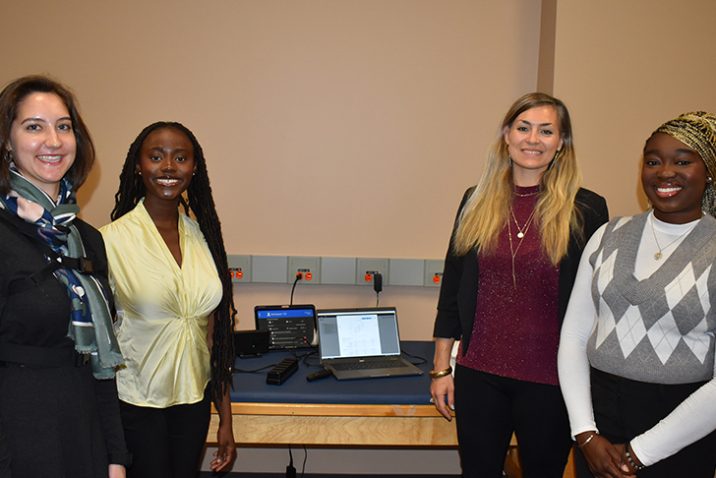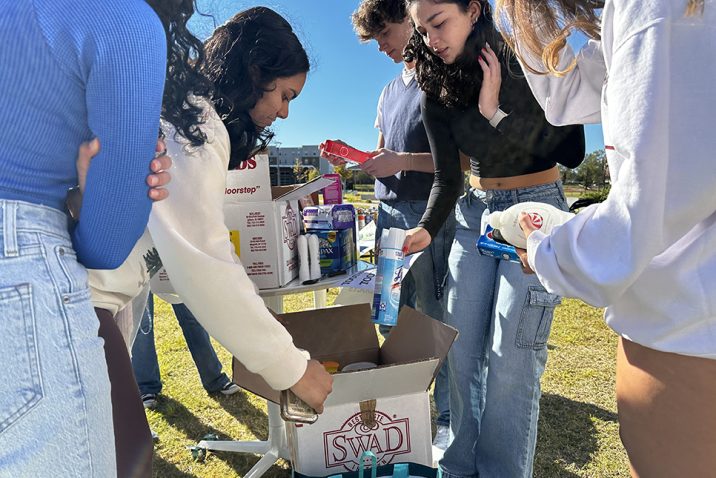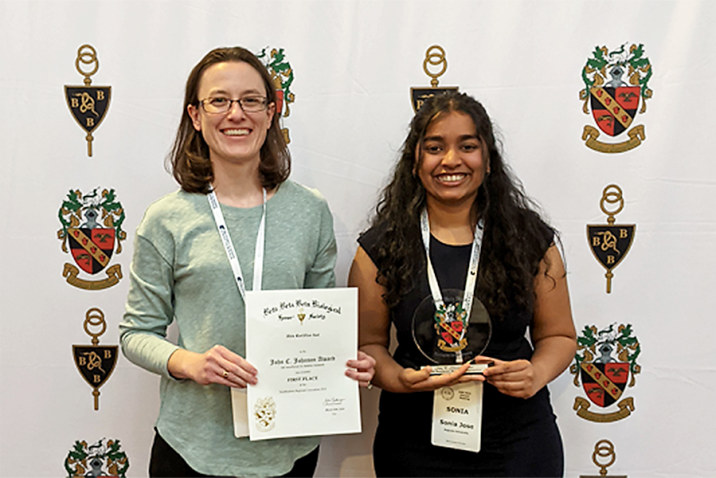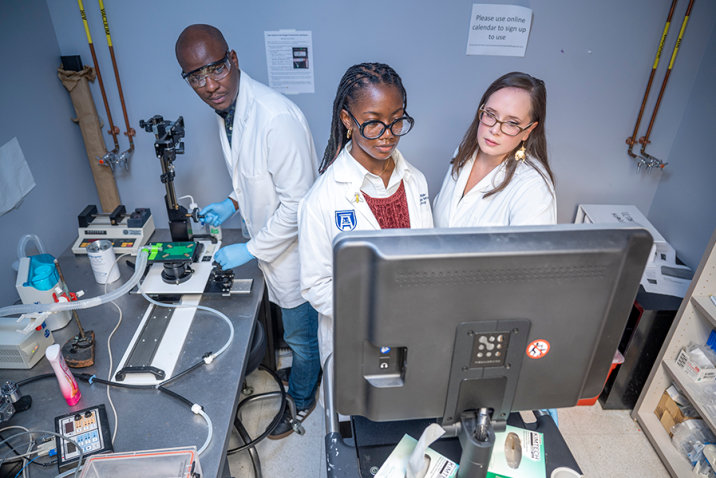AU undergraduate research team selected to participate in national program
“Learning to communicate and advocate for your research effectively is such an important tool as a researcher and can lead to valuable change,” says Quentin Davis, PhD.
Are you someone who wants to protect the environment? Do you see yourself working to conserve natural resources? What about investigating biodiversity?
The Ecology program from the College of Science and Mathematics’ Department of Biological Sciences prepares students for a variety of career pathways.
An Ecology degree from Augusta University offers an experience like no other. With it, you can pursue advanced degrees or move directly into a job in ecology or other environmental fields.
Ecology is for you if you consider yourself
Ecology Program
1201 Goss Lane
Augusta, GA 30912
Science & Mathematics Building
706-737-1539
What You'll Study
In the Ecology program, you’ll supplement your basic science classes with classes including botany, herpetology, marine biology, plant physiology and animal behavior. To enhance professional development as well as employment potential, you’re encouraged to participate in some of the many research opportunities available to undergraduates.
Experience-based Education
A diverse array of research projects offer exciting hands-on experiences that enhance resumes and develop valuable skills.
The Biology Club provides an opportunity for students interested in the biological sciences to exchange ideas and learn more about their field of interest in a fun, engaging environment.
A number of departmental awards recognize student success and celebrates academic achievement.
Whether you’re an undergraduate or graduate student, you’ll have opportunities to create your own research projects or work with faculty to tackle some of the world’s most complex and pressing challenges.
A new, state-of-the-art building with 22 teaching labs, a tutoring center and a top floor dedicated to research is located on the Health Sciences Campus, maximizing educational and research opportunities.
The College of Science and Mathematics’ living learning community helps incoming freshmen thrive during that critical first year of college by offering a supportive network of like-minded students and plenty of engagement opportunities.
A tutoring center specifically for science and math students is located on the Health Sciences Campus, with similar help also offered at the Academic Success Center on the Summerville Campus.
Your Future
Graduates from the Ecology program can work in jobs including ecologist or environmental scientist, or continue their academic journey by entering a graduate program.
According to the U.S. Bureau of Labor Statistics, environmental scientists and specialists have a median salary of $76,530 per year.

Learning Like No Other
A full range of student support services exist to make sure that students have the opportunity to find assistance, advice or mentorship.
An emphasis on research means graduates leave the program with the practical lab and field experience employers and graduate schools are looking for.
A new building in the heart of the Health Sciences Campus puts Ecology students in the middle of the university’s research enterprise, maximizing opportunities for internships and mentorships.

“Learning to communicate and advocate for your research effectively is such an important tool as a researcher and can lead to valuable change,” says Quentin Davis, PhD.

Three students collected 200 pounds of items and more than $300 that they used to purchase more supplies.

“This undergraduate research experience has inspired me to specialize in oncology and dive deeper into understanding cancer,” said Sonia Jose.

“The collaborative nature of AU has been so important in progressing our research and everything that we do," said Briah Bailey.